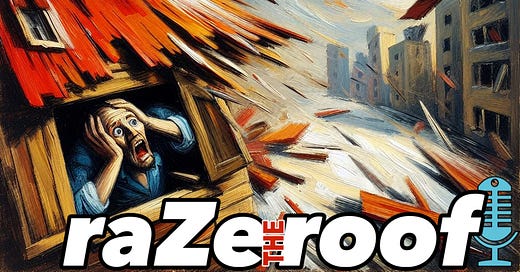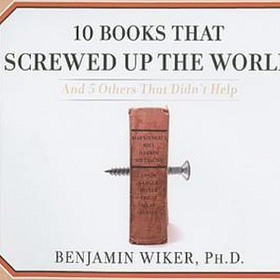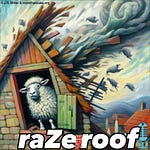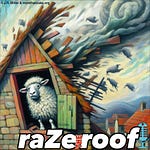If we as Christians hope to Cultivate the Culture and sow the seed of the Gospel of Jesus Christ, then we must understand the big ideas that have shaped the worldview of the people around us. Today Owen Anderson joins Joe and Leroy to explore how Rene Descartes’ old ideas on reason and reality have shaped the waters of identity we swim in. If you want to do some homework before these monthly discussions, pick up a copy of Benjamin Wiker’s book, 10 Books that Screwed Up the World. We’ll cover one chapter at a time so it’s easy enough to read along.
REFERENCES
10 Books that Screwed Up the World: And 5 Others That Didn't Help by Benjamin Wiker
The Complete Harvard Classics 2024 Edition compiled and Edited by Charles W. Eliot LL D in 1909, the Harvard Classics is a 51-volume Anthology of classic literature from throughout the history of western civilization. The set is sometimes called "Eliot's Five-Foot Shelf."
BACKGROUND BASICS
René Descartes was born at La Haye in the French province of Touraine on March 31, 1596. In his writings Descarte recounts how he came to Germany where the idea of, “I think, therefore I exist,” came to him. On this ideas he built up a philosophy which is usually regarded as the foundation of modern thought. Not that the system of Descartes is accepted to-day; but the sweeping away of presupposition of all kinds, and the “method” which he proposed for the discovery of truth, have made possible the whole modern philosophic development. It was in the “Discourse” originally published in 1637, that this method was first presented to the world. And its this method we’ll explore today through the lens of the Christian Worldview.
EPISODES IN THIS SERIES
10 Books that Screwed Up the World
If you want to understand the culture, you need to understand philosophy. But if that task seems overwhelming, this podcast series is just for you.
DISCUSSION POINTS
Below is a list of just a few of the big ideas discussed in this episode. Subscribers, feel free to weigh in with your own ideas and join me in the conversation.
What are the main reasons for discussing Descartes’ ideas in the context of a Christian podcast?
How did Descartes’ historical context influence his ideas?
What was Descartes' famous statement that forms the basis of his philosophy?
What was Descartes' famous statement that forms the basis of his philosophy?
How did Descartes’ method emphasize the importance of doubt in the search for truth?
What are the four key precepts of Descartes' method for discovering reliable knowledge?
Explain Descartes' concept of “radical doubt” and how it leads to his conclusion “I think, therefore I am.”
What is the significance of Descartes' provisional moral code, and what are its key principles?
How does Descartes justify the existence of God through reason and his method of inquiry?
What was Descartes' view on the relationship between the mind and the body? How does this lead to a dualist identity?
According to Descartes, how do humans differ from animals, particularly in terms of reason and language?
How can we apply the six worldview questions to Descartes’ philosophy?
Episodes in this Series
10 Books that Screwed Up the World
If you want to understand the culture, you need to understand philosophy. But if that task seems overwhelming, this podcast series is just for you.



















Share this post